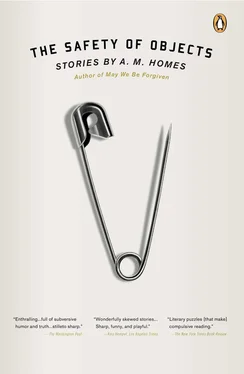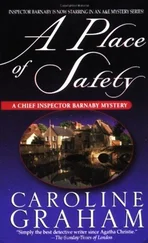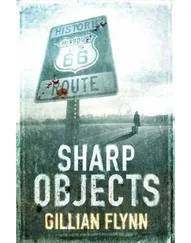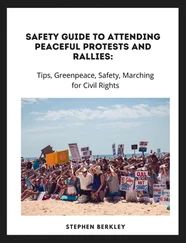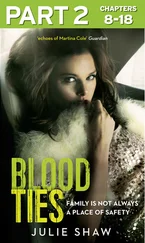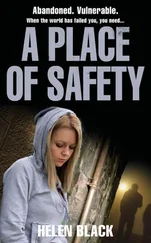I’ll only be able to mumble “Ummmm hummm,” because my grin will have set like cement. I’m hiding in the linen closet writing love letters to myself.
If something horrible happens it won’t be my fault. It’s the middle of the night and I’m checking things, walking around the house making sure everything is all right. I’m losing sleep. I check the thermostat, the doors, the smoke detector.
I think about a burglar. He would come up onto the porch, turn the knob, and come into my house. He would take things: the television, the VCR, the silver, my jewelry, things I’ve collected over the years, collected as symbols of my marriage, things that sometimes seem as though they are the marriage. I would help him pack. He would take the things that make me who I am, and then I would be able to be someone else.
A burglar would come in and kill us all. He would think of himself as a violent criminal, and I would think he was doing me a favor. We would line up and for the first time in twenty years I would ask to come first: Shoot me, shoot me, please. I don’t have the guts to do it myself.
A burglar would wake Harold and me. He’d tell us, “Round everybody up. I want the whole house in one room.” We’d go down the hall and get Cindy. The burglar would be behind us, his gun pressed into my back. We’d get to her door and find it locked from the inside. While Harold pounded on the door, I would explain that Cindy was fifteen and that’s the way things sometimes are. Harold would bang on the door. He’d scream that if she didn’t open it he’d take the door off its hinges. Harold would say it was his house and he had the right to get into any room. We’d get Cindy out of her room and the burglar would say, “What about in there? What about that room there with the light on?”
I’d tell him there was no one there. He’d poke me with the gun and ask what about the light, the Mötley Crüe poster on the door, and why was the radio on. “Don’t play games with me, lady,” he’d say.
We’d take him in. We’d go in front of him. Harold and I would lead him and then step aside. He’d see the body on the bed, the plastic tubing, the thin blue water mattress that keeps Paul constantly moving. He’d see Paul, eyes open, looking nowhere, the body twisted, or more untwisted like a pretzel undone. He’d see it all and drop everything. He’d run from our house not wanting to take anything, not wanting to hold anything that had been touched by the magic of the living dead.
* * *
A fire. Something in the basement, in the wiring, in one of the walls. Before we noticed half the house might be consumed. A wall of fire would rupture through the linen closet, eating the children’s baby blankets. It would lick us in our sleep. I would feel warm dark smoke fill my lungs. In my sleep, I would cough and roll toward it breathing deeply. And Paul. Paul in a fire. His tubing would dissolve into a hot pool of plastic, it would begin to bubble, then turn black. Crystals of plastic would embed themselves in his skin. The oxygen tank, a tall green canister that I once thought was him, would explode. From the doorway I once saw the outline of something tall and rounded, and thought of Paul bending over. I mistook a green metal tank for my son and for a moment thought everything was all right.
I check everything and go into my son’s room. In the middle of the night, I watch him float somewhere between sleep and death. The shades are up. The lights are on as though we think Paul will wake up in the middle of the night and not know where he is; as if light equals life. I wonder if we leave them on so that when we check on him, we don’t have to lean over the bed, the body, stretch out across our son, and flick the switch. Lights are shining in Paul’s face and he doesn’t notice.
From the outside, from the other side of the windows, Paul’s room looks like an exhibit. I’ve seen it at night when I’m out walking the dog. Brightly lit, he looks like something on display, a Christmas window in suburbia.
* * *
The Museum of the Modern Dead. Open twenty-four hours a day, seven days a week, admission five dollars, three for students, free to seniors, children under five, and the severely handicapped. Come one, come all, come to the birthplace of the living dead, come spend a day with us, it’ll last a lifetime.
We’re a working museum. I wear a period costume, like the ladies at Williamsburg. I always wear the blue, red, and purple dress I had on the night the state trooper called and said there had been an accident — my car, my son. I show visitors the telephone that rang as Harold and I were walking in the door, coming home from a dinner party. I tell them about the party, our friends, and how we used to laugh. I have index cards with the recipes Rita used that night. I hand them out while I describe listening to the trooper tell me Paul might not live until morning. I explain wearing the dress for four days and nights while we waited in the little rooms next to the intensive care and surgical suites. The dress seemed all wrong, like a piñata in a library.
I pull the visitors close and whisper in their ears that I prayed that night. I prayed for four days even though I didn’t know if I believed in God. I tell them that if they’re ever in a praying situation to be specific, to include certain clauses. It’s not enough to assume that if a person lives he’ll be all right.
I take visitors into the living room and we pause there. I unhook the red velvet ropes and have them sit on the sofa while I talk about how Harold and I wanted nothing more than for our son to get well. I talk about Paul and show baby pictures. I have pictures of his arm, broken ten years ago when he fell off his bike. I tell them I thought I’d go crazy if everything didn’t come out all right, if he couldn’t play football, baseball, if he couldn’t do everything he wanted to do. I tell them what they already know but still want to hear.
All we ever wanted was a normal child, happy and healthy. We told ourselves we would give anything for our children. We said this as though it was something to be proud of. I whisper everything just in case they don’t want to hear it.
I pass around his medical charts, photographs of his brain, X-rays of his spinal column, graphs and charts they showed us at the hospital, words I’ve learned to pronounce. We talk about what it means to be in a coma, a deep sleep that lets my baby breathe, keeps his eyes open, and sometimes makes him sit bolt upright, like he’s seen a ghost. I ask for questions, ask if anyone there has ever been in a coma. I ask the visitors to raise their hands.
* * *
Help. What kind of help are we getting? The doctors didn’t think it was a good idea to take him home. They thought it was better for him to be in our lives from a distance, from a hospital room.
Harold put his foot down. He said, “Not one more red cent,” and they said we could check him out, they’d done all they could. He was ours, we could have him back if we promised to hire help, to see a therapist, to try to rehabilitate him. We could take him home if we promised to pay our bill. I show them Harold’s bill folder, his whole file cabinet crammed with computer printouts, pieces of paper with more zeros than our calculator.
Help. I talk to them about therapy, about all of us in one room, coming together to hate Paul. The shrink said we couldn’t let him run our lives. She said, “Okay, let’s not talk about Paul this week, let’s talk about something else,” but even that was about Paul, because we purposely left him out.
Cindy said, “I wish he was dead.”
And everyone nodded.
* * *
I tell them about Cindy, how she showed her brother to her friends just like he showed her off when she was a baby. She brought her friends into his room because they asked to come. They stood around the bed in a tight cluster and asked her where each tube went in and where it came out. They asked and finally Cindy had enough of it. She pulled down the sheets and let them look for themselves. She showed them her brother, lying naked, his legs and arms arranged in a pattern that was supposed to be good for circulation. She showed them the special motorized pad, medical Magic Fingers, that kept him moving so he wouldn’t get bedsores. She showed them everything. And then she watched them staring at her brother’s pale frozen body, at the way the tube came out of his penis. They would look at that part of him as long as she would let them. Cindy told me that one time a girl asked if she could touch it and Cindy said yes. She said yes and then turned away. She turned her head and out of the corner of her eye she saw the girl pull her hand back.
Читать дальше
